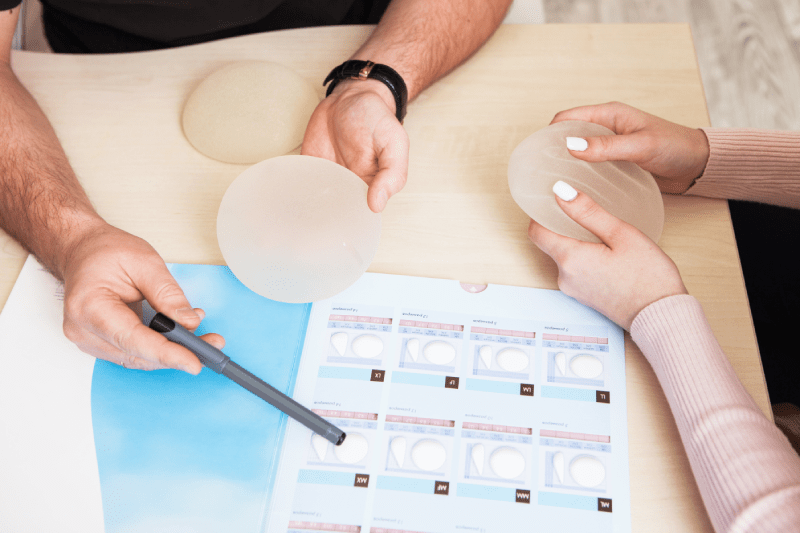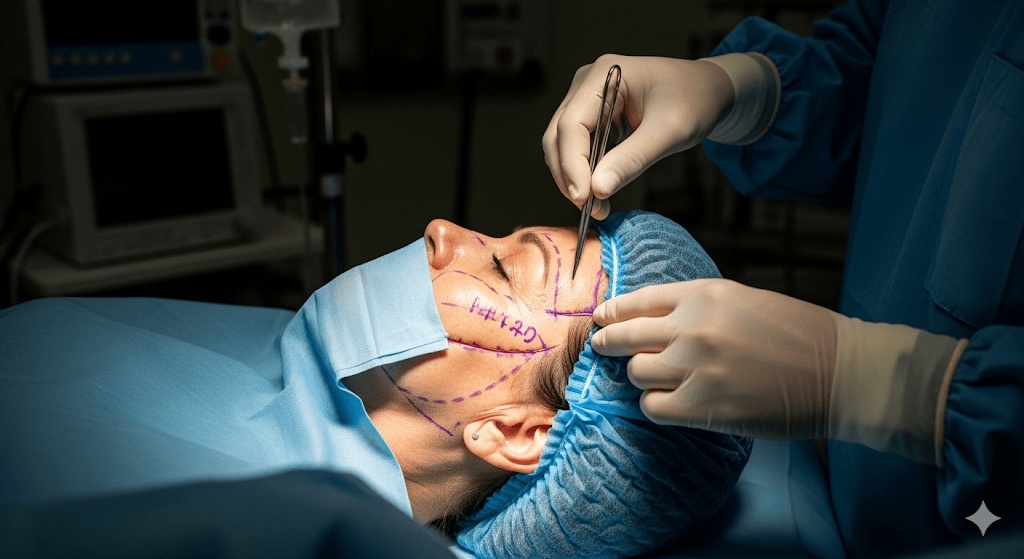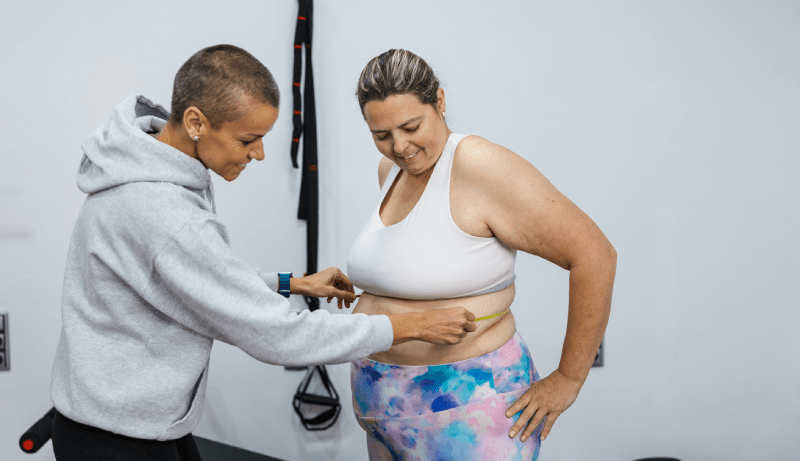Turkey Travel Guide
Turkey, with its unique geography and rich history, is a paradise that appeals to every visitor’s interest. This detailed guide has been prepared to help you navigate your journey through this fascinating country.
Where to Stay in Turkey?
Accommodation in Turkey offers a wide range of options, from luxurious resorts and boutique hotels to traditional guesthouses and apartment rentals.
- Istanbul: In the Historical Peninsula, boutique hotels within walking distance of Hagia Sophia and the Blue Mosque offer a chance to wake up to history. For those who want to explore the city’s modern face, the chic design hotels and luxury accommodation options in the Karaköy, Galata, and Beyoğlu districts are ideal. Hotels along the Bosphorus promise a luxurious experience with an unforgettable view.
- Coastal Cities (Antalya, Bodrum, Fethiye): All-inclusive hotels with kids’ clubs and entertainment activities are popular for families. For those seeking a more peaceful holiday, there are boutique hotels and private villas for rent. It is important to book early, especially during the summer months, to avoid availability issues.
- Cappadocia: The cave hotels carved into the unique rock formations of Cappadocia allow you to feel the mystical atmosphere of the region most deeply. In some hotels, you can watch hot air balloons ascend into the sky from your room.
- Eastern Black Sea: Accommodation in this region is generally more intertwined with nature, in the form of wooden plateau houses or boutique hotels. Visitors can have a peaceful and traditional experience here.
Turkey’s Currency and Prices
Turkey’s currency is the Turkish Lira (₺). Prices can vary, especially depending on exchange rates.
- Prices: In tourist centers like Istanbul or Bodrum, the price of a coffee at a cafe might be around ₺80-150, while the price might be more affordable at a local shop or market. Taxi fares are calculated per kilometer, but public transport (metro, bus) is much more economical. An intercity bus ticket costs on average ₺500-1000, while similar prices can be found for short-haul flights.
- Payment: Although credit card usage is widespread, you may need cash at small businesses, markets, or in taxis. It’s always a good idea to carry a small amount of Turkish Lira with you. Bargaining is a tradition when shopping in places like the Grand Bazaar, and it’s possible to reduce the price by half.
The Best Seasons to Visit Turkey
Due to Turkey’s vast geography, the climate varies by region. It is important to choose the right season based on the purpose of your trip.
- Spring (April-June) and Autumn (September-October): Temperatures are mild, and nature is at its liveliest. These seasons are ideal for historical and cultural trips, nature walks, and city tours. You can comfortably visit places like Istanbul, Ephesus, and Cappadocia.
- Summer (June-August): Turkey’s Aegean and Mediterranean coasts are the most popular time for a beach holiday. However, temperatures can exceed 40°C, and tourist crowds are at their peak. These seasons may not be suitable for those who dislike crowds.
- Winter (December-March): The Eastern Anatolia and Black Sea regions are ideal for winter sports. Ski resorts like Erciyes and Uludağ become active. The snow-covered scenery of Cappadocia creates a unique atmosphere for photography enthusiasts.
Historical and Cultural Places to Visit in Turkey
Turkey has been home to many civilizations throughout history. You can encounter a new story around every corner.
- Hagia Sophia and the Blue Mosque (Istanbul): Hagia Sophia, which has been used as a church, a mosque, and a museum during its 1,500-year history, is one of the most important architectural structures in human history. The Blue Mosque, located across from it, is known as the “Blue Mosque” for its handmade İznik tiles.
- Ephesus Ancient City (Izmir): One of the largest cities of the ancient world, Ephesus showcases the splendor of the Roman period with impressive structures like the Library of Celsus and the Great Theatre.
- Cappadocia (Nevşehir): The fairy chimneys formed by millions of years of erosion and the underground cities used by early Christians to hide create a fairytale-like landscape.
- Göbeklitepe (Şanlıurfa): This ancient temple, dating back approximately 12,000 years, is so impressive it will make you rewrite what you know about human history.
- Aspendos Ancient Theatre (Antalya): It is one of the best-preserved Roman theatres. Its acoustics are still so perfect that it is used for concerts and festivals today.
Turkish Cuisine and Delicacies
Turkish cuisine has a rich variety of flavors that differ according to its geography. Each region has its own unique tastes.
- Turkish Breakfast: Turkish breakfast is not just a meal, it’s a feast. The table is filled with many flavors such as various cheeses, olives, tomatoes, cucumbers, honey, clotted cream, jam, and simit.
- Kebabs and Meat Dishes: Meat-based dishes like Adana, Urfa, and Iskender kebabs are indispensable to Southeastern cuisine. In Aegean cuisine, olive oil dishes and meals made with fresh herbs are more prominent.
- Pastries: Dishes like mantı made from thinly rolled dough, pide, and lahmacun are also integral parts of Turkish cuisine.
- Street Foods: You can experience the local culture with street foods you can find on every corner in Istanbul, such as simit, roasted corn, chestnuts, stuffed mussels, and kokoreç.
Shopping in Turkey
Shopping in Turkey is a paradise for those looking for both traditional handicrafts and modern designs.
- Grand Bazaar (Istanbul): One of the oldest and largest covered markets in the world, the Grand Bazaar is like a treasure hunt where you can find all kinds of traditional products, from handmade carpets to ceramics, leather goods to gold jewelry, and antiques. Bargaining is a tradition here, and you should definitely try to lower the price.
- Spice Bazaar (Istanbul): In this market, where the scents of spices intoxicate you, you can find all kinds of spices, herbal teas, dried fruits, and Turkish delights.
- Modern Shopping Malls and Streets: Istiklal Avenue and Nişantaşı in Istanbul, Kordon in Izmir, and Tunalı Hilmi Street in Ankara are home to international brands and local designers’ stores.
Transportation Options in Turkey
Turkey’s large and modern transportation network makes intercity and city-internal travel quite easy.
- Intercity: Many cities in Turkey have airports, and domestic flights are very common. Buses are a more economical alternative, offering a comfortable and reliable service. The High-Speed Train (YHT) network has significantly shortened travel between major cities like Istanbul, Ankara, and Konya.
- In the city: Major cities have a wide public transport network including metro, tram, bus, and dolmuş (minibus). Electronic cards like Istanbulkart are valid for all these vehicles and are easy to use.
Turkey’s Natural Beauties
Turkey attracts visitors not only with its history but also with its fascinating natural landscapes.
- Lake Salda (Burdur): Known as the “Maldives of Turkey,” this lake has a unique landscape with its white sandy beach and turquoise water.
- Pamukkale (Denizli): Located on the UNESCO World Heritage List, these white travertine terraces are formed by calcium deposits from thermal waters and are ideal for a walk.
- Lycian Way: This 500 km-long ancient walking route, stretching from Fethiye to Antalya, combines the most beautiful bays and historical ruins of the Aegean and Mediterranean.
- Uzungöl (Trabzon): Located among the lush green mountains of the Eastern Black Sea, Uzungöl is perfect for nature walks and bike tours.
Festivals and Events in Turkey
Turkey hosts many art, music, sports, and cultural festivals throughout the year.
- Istanbul Film Festival: This prestigious festival, held every April, brings together the best examples of international and local cinema.
- Istanbul International Jazz Festival: A festival held in July, hosting world-famous jazz musicians.
- Nevruz: The arrival of spring is celebrated with great enthusiasm, especially in the Eastern and Southeastern Anatolian regions.
- Bodrum Ballet Festival: Held in the historical Bodrum Castle in August, you can watch the most beautiful examples of ballet art at this festival.
Turkish Customs and Etiquette
Turkish culture is based on hospitality and mutual respect.
- Greeting: Expressions like “Merhaba” (Hello) and “Nasılsınız?” (How are you?) are important for establishing a friendly communication. “Kolay gelsin” is used to wish someone ease in their work.
- Hospitality: When visiting a home, you are expected to take off your shoes at the door. It is customary not to refuse the refreshments offered.
- Religious Places: When visiting mosques, women should cover their hair, and men should cover their shoulders and knees. It is mandatory to take off your shoes.

Turkish Bath Experience
A Turkish bath is not just a bath but also a ritual that relaxes the body and mind.
- Heat and Steam: The Turkish bath experience begins by sweating in a hot and steamy room.
- Exfoliation and Massage: A tellak (male bath attendant) or natır (female bath attendant) then cleans your skin of dead cells with a special exfoliating glove called a kese. Your body is then relaxed with a soap massage.
- Relaxation: After washing, you can relax in the resting area with tea or sherbet.
Nightlife in Turkey
Nightlife in Turkey is quite vibrant and colorful, especially in major cities.
- Istanbul: The districts of Beyoğlu, Karaköy, Nişantaşı, and Beşiktaş have a variety of bars, live music venues, and nightclubs.
- Meyhanes: Meyhanes (taverns) offer an authentic experience where conversation and entertainment combine with rakı and mezes.
- Coastal Cities: In summer, beach parties and venues where famous DJs perform are very popular in coastal towns like Bodrum, Çeşme, and Marmaris.
Things to Consider About Hotels and Accommodation in Turkey
Reviews: Reading reviews on independent travel sites is more reliable for getting an accurate idea of service quality and cleanliness than relying on hotel websites.
Reservation: It is important to book your hotel in advance, especially during the summer and official holidays.
Location: Check the proximity of your accommodation to the places you want to visit.
Turkey’s Healthcare System
The Turkish health system has a mixed structure. In this system, the General Health Insurance (GHI), managed by the state, plays the main role, while the private sector also holds a significant place. The system aims to provide health services to all citizens and foreigners residing in Turkey.
General Health Insurance (GHI)
GHI is the fundamental pillar of Turkey’s health system. It is regulated by the Social Security and General Health Insurance Law no. 5510. Those covered by GHI can receive services from state hospitals, university hospitals, and contracted private hospitals. Insurance premiums are paid by employees, employers, and the state. Individuals without any social security can undergo an income test and either pay their premiums themselves or have their premiums covered by the state.
Healthcare Institutions
Healthcare services in Turkey are provided through both public and private institutions.
- Family Health Centers (ASM): As primary healthcare providers, ASM’s are the first point of contact for citizens. Family doctors perform services such as routine examinations, vaccinations, and referral procedures.
- State Hospitals: These hospitals provide secondary and tertiary healthcare services, offering a wide range of specialties and providing free or low-cost services under GHI.
- University Hospitals: These institutions, which provide both education and healthcare services, are generally specialized in more complex and advanced treatments.
- Private Hospitals and Polyclinics: These institutions, which are either contracted with GHI or provide services only through private health insurance or cash payment, generally offer shorter waiting times and different service quality.
The Role of the Ministry of Health
The Ministry of Health is responsible for the coordination and regulation of the entire health system. The Ministry determines health policies, supervises hospitals, combats epidemics, and organizes the training of health personnel.
Private Health Insurance
Private health insurance is an alternative option preferred in addition to GHI. This insurance offers greater flexibility and service options in private hospitals. Individuals can cover services such as examinations, tests, and surgeries in private hospitals through this insurance.
Recent Developments and Challenges
Many reforms have been made in recent years to improve the health system in Turkey. The Health Transformation Program has increased patient satisfaction and facilitated access to health services. However, challenges such as the increasing population, the spread of chronic diseases, and the rise in healthcare expenditures continue.
Turkey Health Tourism Guide
Health tourism is the travel of individuals to another country for better quality, more affordable, or otherwise inaccessible treatments. In recent years, Turkey has become one of the most preferred destinations worldwide in this field. This guide aims to provide a comprehensive overview of health tourism in Turkey, guiding you through the entire process, from planning your trip to choosing your treatment options.
Why Turkey for Health Tourism?
The biggest strength behind Turkey’s prominence in health tourism is the perfect balance between the high quality medical services and the highly competitive prices it offers. This balance makes Turkey an attractive alternative, especially for patients who want to avoid the high healthcare costs in Western Europe and North America. The country has become a global brand with its modern medical infrastructure, experienced healthcare professionals, and patient-centered service approach.
Turkey Health Tourism: Costs vs. Quality
Turkey stands out by offering low costs without compromising on the quality of its health services. This cost advantage stems not only from lower labor and operational costs but also from government policies that encourage health tourism.
Quality Standards: Many Turkish hospitals are accredited by international organizations such as JCI (Joint Commission International). This means that the hospitals operate in compliance with globally accepted high standards for patient safety and quality. Furthermore, healthcare professionals undergo rigorous training and closely follow the latest medical developments.
Cost Advantage: Compared to countries like the USA, UK, or Germany, a surgical operation or treatment of the same quality can cost 50% to 70% less in Turkey. This allows patients to save significantly on treatment expenses while receiving top-notch service.
Cost of Medical Treatment in Turkey
The following are cost comparisons of medical procedures in Turkey and equivalent procedures in the United Kingdom.
| Medical Procedures | |||
| Procedure | UK Hospitals | Turkey | Average Savings |
| Coronary Angioplasty | $13,000 – $15,000 | $5,000 – $6,000 | 60% – 65% |
| Hip Replacement | $13,500 – $14,500 | $6,500 – $7,500 | 45% – 50$ |
| Prostrate Removal (Prostatectomy) | $7,000 – $8,000 | $5,500 – $6,500 | 15% – 20% |
| Knee Replacement | $16,000 – $17,000 | $7,000 – $8,000 | 50% – 60% |
| Hemorrhoids Removal | $3,000 – $4,000 | $1,500 – $2,500 | 45% – 55% |
| Plastic and Reconstructive Surgery | |||
| Procedure | UK Hospitals | Turkey | Average Savings |
| Face Lift (rhytidectomy) | $11,000 – $12,000 | $3,000 – $4,000 | 65% – 75% |
| Breast Augmentation (Mammoplasty) | $7,000 – $8,000 | $3,000 – $4,000 | 50% – 60% |
| Breast Reduction | $8,000 – $9,000 | $3,500 – $4,500 | 50% – 60% |
| Liposuction (lipoplasty) | $5,000 – $6,000 | $2,000 – $3,000 | 55% – 65% |
| Nose Surgery (Rhinoplasty) | $5,500 – $6,500 | $3,000 – $4,000 | 40% – 45% |
| Tummy Tuck (Abdominoplasty) | $8,000 – $9,000 | $3,000 – $4,000 | 55% – 60% |
| Eye / Ophthalmology | |||
| Procedure | UK Hospitals | Turkey | Average Savings |
| LASIK Eye Surgery | $1,500 – $2,500 | $1,000 – $1,500 | 20% – 25% |
| Cataract Removal | $4,000 – $5,000 | $1,000 – $2,000 | 55% – 65% |
| General and Cosmetic Dentistry | |||
| Procedure | UK Hospitals | Turkey | Average Savings |
| Root Canal (per canal) | $300 – $400 | $100 – $150 | 55% – 65% |
| Tooth Whitening | $900 – $1200 | $400 – $500 | 50% – 60% |
| Dental Implants | $3,000 – $4,000 | $900 – $1500 | 70% – 75% |
| Gold Crowns | $800 – $850 | $200 – $250 | 70% – 75% |
Top 10 Reasons to Choose Turkey for Treatment
- Economic Advantage: Affordable prices for a wide range of fields, from surgery to dental treatments, are the most important reason for its appeal.
- High Quality and Technology: There are many hospitals with the most modern medical equipment in the world and many healthcare institutions with JCI accreditation.
- Experienced and Expert Staff: World-renowned, internationally certified doctors are available, especially in fields like aesthetic surgery, hair transplantation, and dentistry.
- Quick Appointments and Treatment Process: Waiting times that last for months in many countries can be reduced to weeks or even days in Turkey.
- Strategic Geographical Location: Being at the crossroads of Europe, Asia, and the Middle East makes travel easy and short.
- Cultural and Touristic Experience: The treatment process can be combined with a holiday and cultural exploration, thanks to the country’s rich history and natural beauty.
- Comprehensive Patient Services: Many clinics offer special interpreter, transfer, and accommodation services for international patients.
- All-Inclusive Packages: Options that offer treatment, accommodation, and transfers in a single package make planning extremely easy.
- Privacy and Confidentiality: The utmost importance is given to patient privacy, especially for aesthetic procedures like hair transplantation and other surgeries.
- Warm Hospitality: Turkey is known for its hospitable culture, and patients feel comfortable and secure during their treatment process.

How to Find the Best Clinic for Medical Treatment in Istanbul?
In a large city like Istanbul, finding the right clinic is critical for successful treatment.
- Conduct Thorough Research: Carefully review patient reviews, clinic websites, and social media accounts online.
- Check Accreditations: Inquire whether the clinic or hospital has international accreditations such as JCI or ISO. These certificates are an indication that certain quality standards are met.
- Research the Doctor’s Expertise: Get information about the doctor’s experience, specialization, and the success rates of similar operations they have performed. The international medical associations the doctor is a member of can also be a good reference.
- Evaluate the Initial Consultation: Request an online consultation with the clinic before treatment. During this consultation, do not hesitate to ask your questions and get clear information about the services the clinic offers, the treatment plan, and pricing.
- Examine References: If possible, review references or video testimonials from patients who have received treatment at that clinic before.
Health Packages in Turkey: What’s Included?
All-inclusive health packages are designed to simplify the travel and treatment process for international patients. These packages generally include:
- Treatment Process: Doctor’s examinations, surgical operation, hospital stay, and medical supplies used.
- Accommodation: Stay at partner hotels during the treatment period. Hotels are generally convenient and close to the hospital.
- Transfers: All transportation services between the airport, hotel, and hospital (by private car or VIP transfer).
- Translation Services: A professional interpreter to accompany you throughout the treatment process and facilitate communication between you and the doctor.
- Medications and Care Products: Medications, bandages, and care products that need to be used after the operation.
These packages eliminate unexpected costs and the stress of planning for the patient and their companion.
Hair Transplantation in Turkey: FUE and DHI Methods
Hair transplantation is one of the most in-demand aesthetic procedures in Turkey.
- FUE (Follicular Unit Extraction): This procedure involves individually extracting hair follicles from the donor area using a special micromotor and transplanting them to bald areas. It is the most commonly used method, leaves no scars, and provides a natural look.
- DHI (Direct Hair Implantation): In this method, hair follicles are collected with a special Choi implanter pen and directly implanted into the recipient area. It allows for denser implantation and does not require incisions.
Both methods have advantages and disadvantages, and you should decide which one is right for you in consultation with your doctor.
Dental Tourism in Turkey: Implant and Veneer Costs
Turkey is also very popular for dental tourism, offering high-quality dental treatments at affordable prices.
- Dental Implant: A dental implant treatment in Turkey can cost one-third or less of the cost in Western countries. The implant brand used and the surgeon’s experience are factors that influence the cost.
- Veneers and Zirconium: Porcelain and zirconium veneers are popular options for those who want to achieve an aesthetic smile. In Turkey, these procedures can be completed quickly and economically, especially thanks to the use of modern CAD/CAM devices.
A Guide to Aesthetic Surgery in Turkey: Popular Procedures
Turkey has gained global recognition with its expert aesthetic surgeons and modern clinics. Popular aesthetic surgery procedures include:
- Liposuction: The removal of excess fat from specific parts of the body.
- Breast Aesthetics: Augmentation, reduction, and lift operations.
- Facelift: A procedure to address signs of aging.
- Botox and Fillers: Non-surgical aesthetic procedures.
Turkey’s Best Hospitals for Obesity Surgery
Obesity surgery is a life-threatening operation, so hospital selection is of great importance. In Turkey, there are many hospitals specialized in obesity surgery with a multidisciplinary approach. These hospitals offer services where you can receive support from different experts like nutritionists, psychologists, and physiotherapists during the pre- and post-operative follow-up processes. Operations like sleeve gastrectomy and gastric bypass are performed with high success rates in Turkey.
IVF Treatment in Turkey: Success Rates and Price
Turkey offers both high success rates and economic costs in the field of in vitro fertilization (IVF). Experienced embryologists and state-of-the-art laboratories contribute to the high success rates. The prices for IVF treatment vary depending on the protocol applied and additional treatments (microinjection, genetic screening, etc.). Turkey offers more affordable prices in this field compared to many other countries.
Plastic Surgery in Turkey: Rhinoplasty and Tummy Tuck
- Rhinoplasty (Nose Job): Turkey is one of the most preferred countries for rhinoplasty. Surgeons aim to design a natural-looking nose shape that best suits the patient’s facial features.
- Tummy Tuck (Abdominoplasty): This is an operation performed to remove sagging, especially after significant weight loss or pregnancy. Turkish surgeons are also highly experienced in this field.

Breast Augmentation and Lift in Istanbul
Breast aesthetics is one of the most frequently chosen operations by women. There are many clinics in Istanbul specialized in this field.
- Breast Augmentation: Silicon implants are used to give the breasts a fuller and more aesthetic appearance.
- Breast Lift: An operation performed to lift sagging breasts and give them a more youthful look.
Doctors conduct a detailed assessment to determine the most suitable implant type and size for the patient’s body structure.
Orthopedic Surgery in Turkey: Knee and Hip Prosthesis
Turkey is also a popular destination for orthopedic operations.
- Knee Prosthesis: For patients with advanced knee osteoarthritis, knee prosthesis surgeries can be performed using advanced robotic systems.
- Hip Prosthesis: Prosthetic surgeries performed on patients with hip joint damage allow them to return to a life without pain and with more mobility.
The post-operative physiotherapy and rehabilitation process is an important part of recovery, and Turkish hospitals offer comprehensive services in this regard as well.
Laser Eye Surgery in Turkey: Costs and Clinics
Laser eye surgery is a fast and effective solution for those who want to get rid of glasses or contact lenses.
- LASIK and PRK: These are widely used laser eye surgery methods in Turkey.
- Prices: The costs of laser eye surgery vary depending on the method used and the clinic’s pricing policy. However, you can expect to encounter costs between $700 and $1,500 on average, which is much lower than prices in Western countries.
Turkey Health Tourism for Oncology and Cancer Treatment
Turkey also serves international patients in the field of cancer treatment.
- Modern Treatment Methods: Modern treatment methods such as chemotherapy, radiotherapy, immunotherapy, and targeted smart drugs are applied for cancer treatment.
- Radiotherapy: Some hospitals in Turkey have advanced radiotherapy devices like CyberKnife that target cancer cells and do not harm surrounding tissues.
How Much Does a Hair Transplant Cost in Turkey?
The cost of a hair transplant depends on many factors that vary from person to person. These include:
- Method Used: Methods like FUE, DHI, or micro-FUE have different prices.
- Number of Grafts to be Implanted: The more grafts to be implanted, the higher the cost.
- Clinic and Doctor’s Experience: Renowned and experienced surgeons in the field may charge higher prices.
- Package Content: All-inclusive packages that include accommodation and transfers are priced differently than the operation cost alone.
Generally, the cost of a hair transplant in Turkey can be 3 to 5 times lower than the prices in Western countries.
Comparison of Medical Costs: Turkey vs. UK, USA, Germany
| Treatment Field | Turkey (Average) | UK (Average) | USA (Average) | Germany (Average) |
|---|---|---|---|---|
| Hair Transplant | $1,500 – $4,000 | $10,000 – $15,000 | $15,000 – $25,000 | $8,000 – $12,000 |
| Dental Implant | $400 – $800 | $2,500 – $4,000 | $3,000 – $6,000 | $2,000 – $3,500 |
| Rhinoplasty | $2,500 – $5,000 | $6,000 – $10,000 | $8,000 – $15,000 | $5,000 – $8,000 |
| Knee Prosthesis | $8,000 – $12,000 | $15,000 – $20,000 | $30,000 – $50,000 | $15,000 – $25,000 |
All-Inclusive Health Tourism Packages in Turkey
These packages aim to make the treatment process as easy as possible. All organization, from the moment you land to the moment you return home, is handled by partner agencies and clinics. This allows the patient to focus solely on their health. These packages may include accommodation, transfers, translation services, hospital costs, and even city tours.
Hidden Costs of Medical Travel to Turkey
Although all-inclusive packages exist, it’s important to consider potential extra costs that may arise during your trip.
- Additional Medications and Supplies: Medications that may be needed after the operation that are not included in the package.
- Extended Stay: Extra accommodation costs if the recovery period takes longer than expected.
- Food and Personal Expenses: Food and other personal expenses outside the hospital and hotel.
- Companion Costs: Accommodation and flight costs for a companion if you travel with one.
Payment for Medical Treatment in Turkey
Clinics generally accept various payment methods.
- Bank Transfer: International bank transfer before or after treatment is one of the most common methods.
- Credit Card: It is possible to pay with a credit card at hospitals and clinics.
- Cash: Some clinics may accept cash payment up to a certain limit.
Clarifying the payment methods in advance will prevent any issues during your trip.
Visa Requirements for Health Tourists to Turkey
Whether you need a visa to travel to Turkey depends on your nationality and the purpose of your travel. Citizens of many countries are exempt from a visa or can easily obtain an online e-visa through Turkey’s official e-Visa system. A health tourism visa or a regular tourist visa may be sufficient. It is best to check the official website of the Ministry of Foreign Affairs of Turkey or your local consulate before your trip.
Planning Your Medical Trip to Istanbul: A Checklist
- Phase 1: Research and Decision: Determine the field of treatment you need and conduct detailed research on at least 3 different clinics.
- Phase 2: Initial Consultation: Contact the clinics you have identified and request an online consultation. Get clear information about the price, treatment plan, and duration.
- Phase 3: Visa and Flights: Apply for a visa if required. Book your flight tickets according to the treatment date and recovery period.
- Phase 4: Accommodation and Transfer: Evaluate the accommodation option within the package offered by the clinic or rent a hotel or apartment close to the hospital yourself.
- Phase 5: Prepare Documents: Have your passport, visa, and all medical reports requested by your doctor ready.
- Phase 6: Payment Plan: Get information about the clinic’s payment policy and make the necessary financial preparations.
Finding Accommodation Near Hospitals in Turkey
Most hospitals and clinics offer partner hotels or accommodation for foreign patients. Additionally, you can easily find many hotels and apartments within walking distance of the hospital through popular booking sites (Booking.com, Airbnb, etc.). It is important for your accommodation to be close to the hospital for a comfortable recovery process after treatment.
Post-Surgery Recovery and Follow-up Care in Turkey
The post-operative follow-up process in Turkey is taken very seriously.
- Hospital Stay: Depending on the size of the operation, you will be kept under observation in the hospital for a few hours or a few days.
- Post-Discharge Check-ups: After being discharged, you are required to come for regular check-ups with your doctor. These check-ups are generally included in the package price.
- Remote Follow-up: A communication channel (WhatsApp, email, etc.) is provided for you to stay in touch with your doctor and ask any questions you may have after returning to your country.
Is It Safe to Receive Medical Treatment in Turkey?
Receiving medical treatment in Turkey is very safe, as long as you choose the right clinic and doctor. The Turkish Ministry of Health strictly supervises institutions involved in health tourism. For a reliable experience, remember to check that the clinic is licensed by the Ministry of Health and that the doctors’ medical diplomas and certificates are valid. Working with health tourism agencies can also provide you with an added layer of security during this process.



